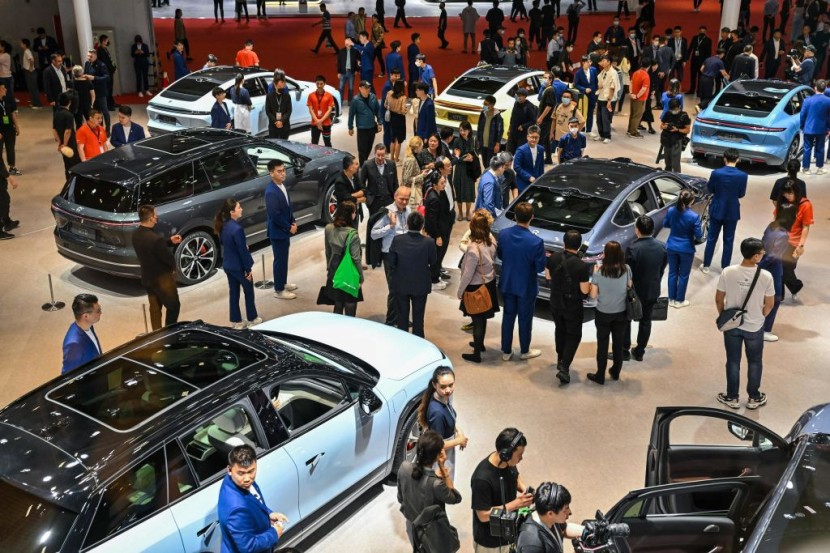China revealed a 520 billion yuan ($72.3 billion) package on Wednesday to support waning auto demand, sending shares of manufacturers substantially higher. The plan is to increase sales of electric vehicles (EVs) and other green automobiles over the next four years.
The package, which was widely anticipated after an earlier government vow to support the industry, comes as softer sales in the largest auto market in the world have sparked worries about the economy's slowing development after a solid start of the year, according to Reuters.
The Purchase Tax Exemption

The purchase tax exemption for new energy vehicles (NEVs) purchased in 2024 and 2025 will be up to 30,000 yuan per car, with the exemption halving for purchases made in 2026 and 2027, according to a statement from the Ministry of Finance.
At a press briefing, the vice minister of Finance, Xu Hongcai, stated that the overall tax reductions would be 520 billion yuan.
The decision extends the present policy, which exempts NEVs from purchase taxes through the end of 2023. NEVs comprise all-battery electric cars (EVs), plug-in petrol-electric hybrids, and hydrogen fuel-cell vehicles.
Following the announcement, Chinese auto shares increased. EV manufacturers NIO (9866. HK) and Xpeng (9868. HK) saw increases of 6.1% and 5.5%, respectively, compared to a 1.9% decline in Hong Kong's benchmark index (.HSI). Li Auto (2015. HK) increased by 3.5% as well.
The announcement comes after a June 2 Cabinet meeting during which officials declared they would maximize and extend the tax exemption and research strategies to encourage the development of NEVs.
The incentives put NEVs, a staple of high-ticket purchases, in the spotlight of a widespread effort to reignite growth in the second-largest economy in the world.
Government incentives that backed the growth of regional players like Li Auto, NIO, and BYD strongly promoted NEVs in recent years. BYD, supported by Warren Buffett's investment firm Berkshire Hathaway, has surpassed Volkswagen in sales in China and overtaken it as the largest automaker there this year.
Less Expensive Models
Analysts predicted that the cap on the purchase tax exemption would encourage the rise of less expensive models made mostly by domestic companies rather than high-end automobiles from foreign manufacturers.
NEV sales took a hit after the government removed an over ten-year-old subsidy for EV purchases. However, they recovered after automakers like Tesla (TSLA.O) cut prices to protect market share and followed the previous purchase tax exemption extension.
Several factors, including government subsidies, increasing consumer awareness of environmental issues, and the growing availability of NEV models, are driving the growth of NEV sales in China.
The Chinese government has been very supportive of the NEV industry, providing subsidies for NEV purchases and investing in NEV infrastructure. This has helped to make NEVs more affordable and accessible to consumers.
In addition, Chinese consumers are becoming increasingly aware of the environmental benefits of NEVs. As air pollution and other environmental problems become more severe in China, consumers are looking for ways to reduce their environmental impact. NEVs are seen as a cleaner and more sustainable option than traditional gasoline-powered vehicles.
The availability of NEV models has been increasing in recent years. Several Chinese automakers now offer NEV models, and many international automakers are also entering the Chinese NEV market. This has given consumers more choices when it comes to NEVs, which has helped to boost sales.
NEV sales growth in China will likely continue in the coming years. The Chinese government has set ambitious targets for NEV sales, and the industry is expected to continue to proliferate. This will significantly impact the global auto industry, as China is the world's largest auto market.
Related Article : China's Ambitious Plan for 'Jing-Jin-Ji': A World-Class Industrial Cluster to Drive Economic Growth
© 2026 HNGN, All rights reserved. Do not reproduce without permission.








